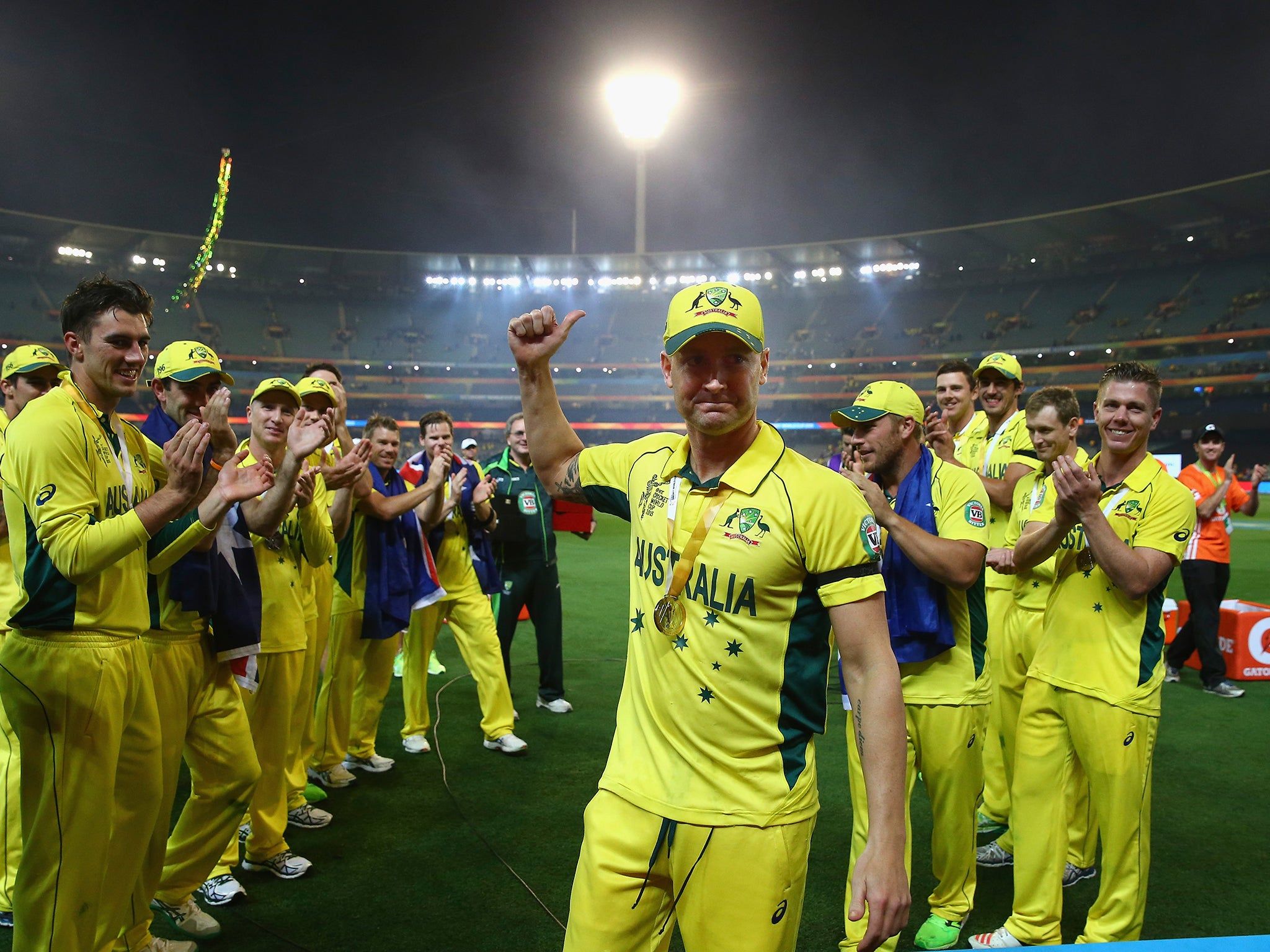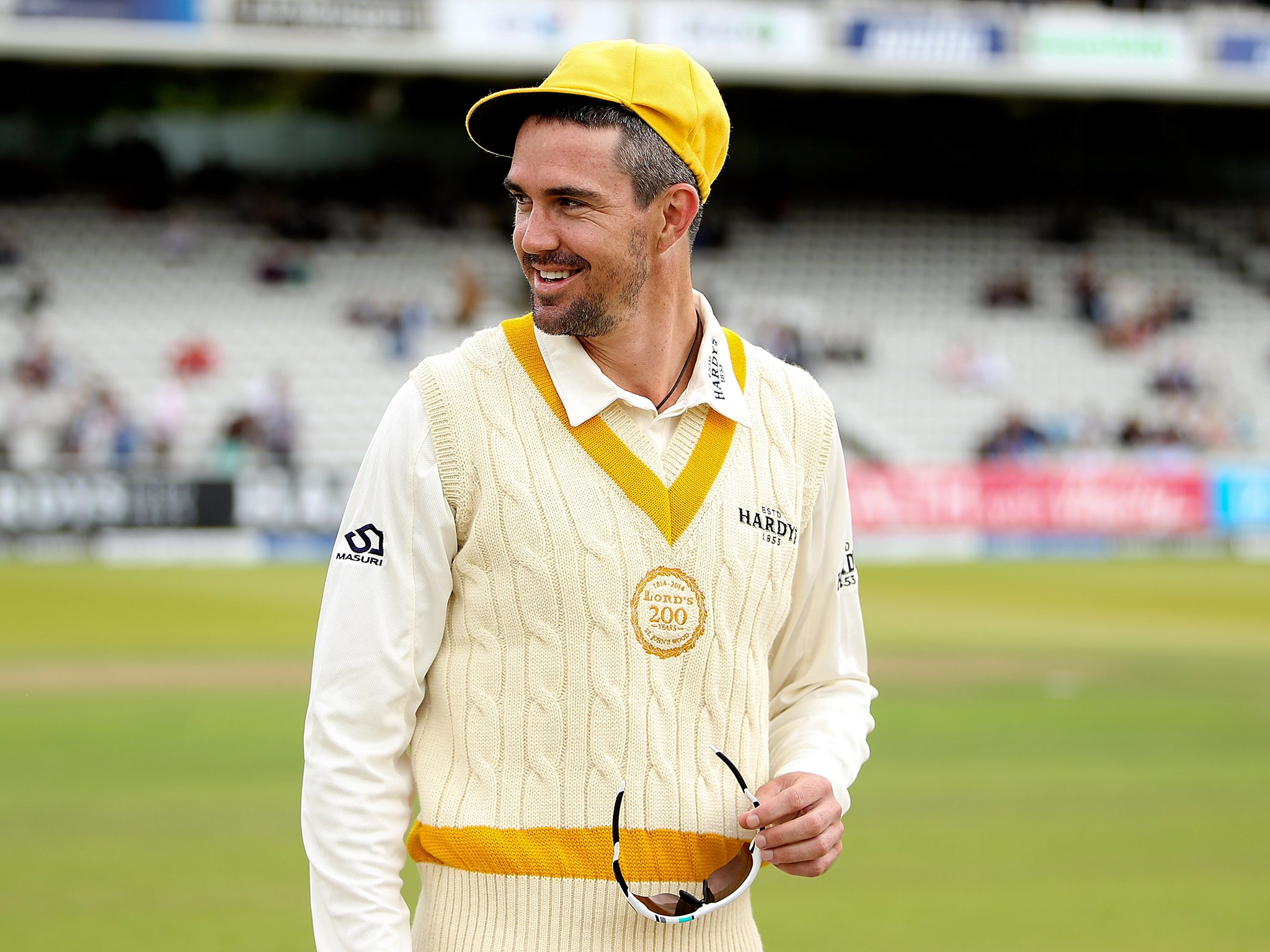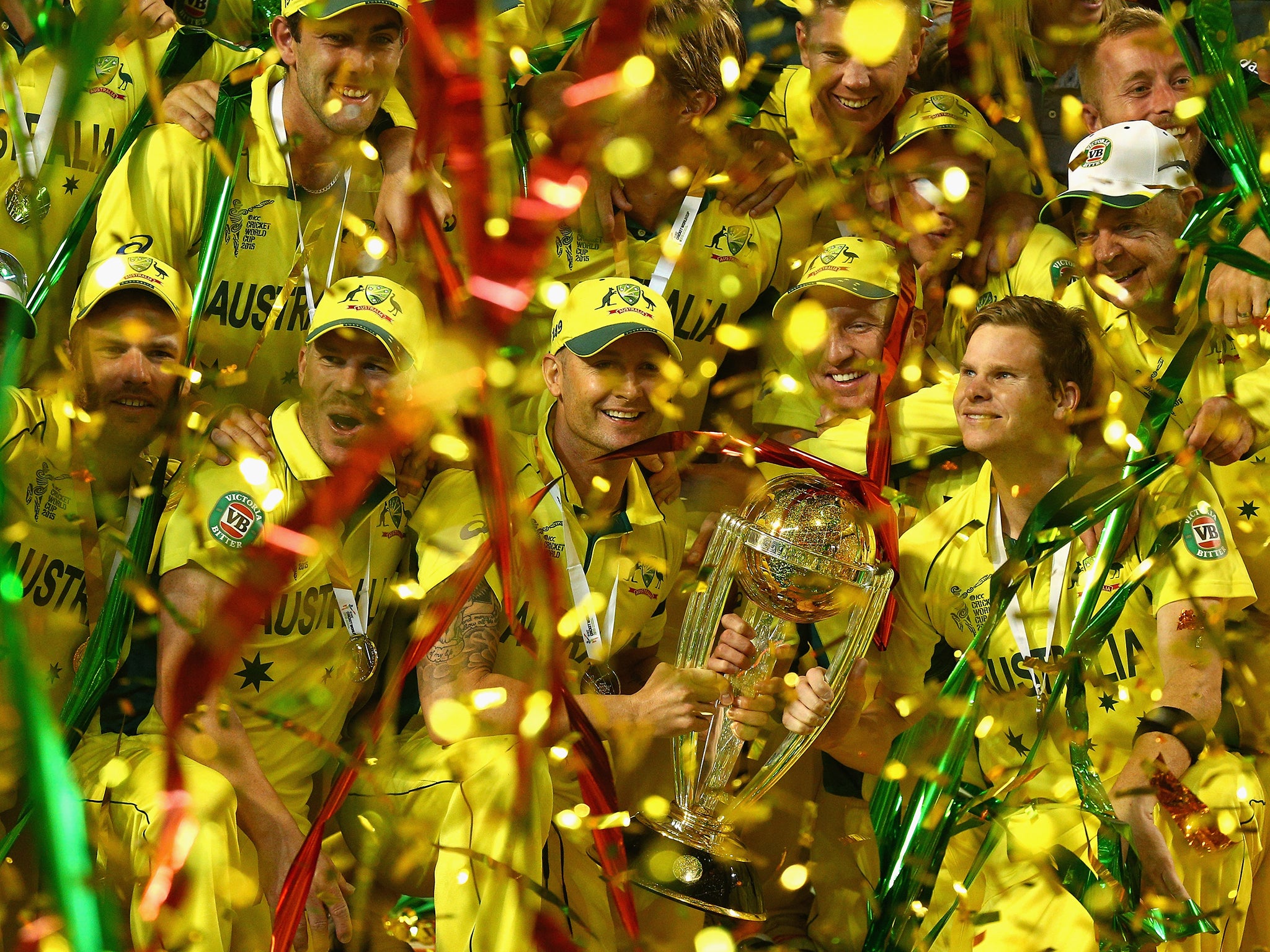Cricket World Cup 2015: England set tough task to meet new standards
COMMENT: English cricket’s supposed saviour Kevin Pietersen will only be 38 by the time the next World Cup starts

A blessed day in Melbourne, a packed MCG extending attendances well beyond the million mark, an explosion of boundaries peppering this tournament, 400-plus sixes, 38 centuries. “Beat that!” said the Cricket Australia chairman, Wally Edwards, to his outgoing counterpart at the ECB, Giles Clarke.
The 2015 World Cup has seen the restoration of one-day cricket as a spectacle, a format capable of sustaining a rapid pulse rate from the gun while allowing for momentum swings often missing in its maniacal offspring Twenty20.
The final was not representative, rather it offered a retro feel with the early fall of wickets and a middle-order collapse pegging the New Zealand run rate to a number commensurate with the 1970s, when encounters opened like Test matches and power plays were the domain of games consoles.
This notwithstanding, the Antipodean summer has given the 50-over format a new relevance, so that we might look forward to 2019 in England with anticipation. By then the hosts might have a clue about how to play the game, though that is a stretch given the paucity of evidence recorded Down Under.
Unlike Twenty20, the daddy hybrid is not only about the bat. This contest, like the first between these sides in the group stage, demonstrated how the ball still has skin in the game. Mitchell Starc’s first-over capture of Kiwi scythe Brendon McCullum set the tone of the innings. Three down for not many, New Zealand were always tethered to a conservative dynamic, rebuilding carefully only to be denied forward thrust at the death by James Faulkner’s masterful incursion.
New Zealand also struck early but without a big total to defend were always on the wrong end of the tension. The loss of opening partner Aaron Finch for just three runs had no impact on Australia’s principal attack dog David Warner, who biffed his way to 40-odd at a run a ball as if he were playing in the Central Lancashire League.
Warner’s wicket brought Michael Clarke to the crease for his last one-day knock for Australia alongside the man poised to replace him as captain, Steve Smith. What a pity that the management of a chronic back condition should force a man of 33 to withdraw from the scene. It says much about the strength of the Australian proposition that Clarke, good as he is, will hardly be missed. The succession will be seamless, placing in even sharper relief the mess engulfing England.
Watching two teams at the vanguard of the 50-over game wrestle for World Cup hegemony must have been hard viewing for all connected with the game’s mother country. You wondered if the head coach, Peter Moores, bogged down in statistical analysis, grasped the significance of a quality that does not reduce to numbers; attitude, character, confidence, belief – you name it, both these sides ooze it.
The one Englishman with a surfeit of the stuff, Ben Stokes, didn’t even make the trip. Don’t worry, there is always the return of Kevin Pietersen to bring the group together. Our man for all seasons will be only 38 when the 2019 World Cup begins, just starting out.

Clarke’s announcement prior to the game that this would be his one-day farewell dipped the final in a coat of heightened romance. An hour before the Australian bus left the team hotel, Clarke was a lone figure at the centre of the MCG, scoping the joint on what would turn out to be a momentous day.
He might have been making the most of his finale, wringing every last drop from the experience. He might also have been working through his options, plotting the route to Australia’s unprecedented fifth World Cup.
Fitting then that, after losing the toss, Clarke, through the agency of Starc, should immediately claim the initiative and later dominate with the timber. He clobbered the first six of the Australian innings and embellished the chase with four boundaries on the spin during the sprint to the line.
On aesthetic grounds and in terms of game management, a personal favourite was the four he hit off the last ball of the 22nd over, the cherry sailing over Tim Southee’s right shoulder en route to the mid-on boundary. Get back in your box was the message it sent to any New Zealander labouring under the illusion he was still in the match.
That, of course, is the default setting of McCullum, a cricketer hard-wired to seek opportunity where others see only the abyss. No cause is lost until the last bail is off. The scoreboard told us Australia needed 33 from 21, a ratio that more commonly links runs required to balls remaining. Such was Australia’s dominance the 21 displayed was the over count, measuring out a drubbing of English proportions.
This wasn’t to be McCullum’s day, but, as always, he did as convention demands, rushing to shake the hand of Clarke as he made his exit after a headline knock of 74 off 72 balls, with Australia just nine short of the target.
Clarke was done by a slower ball from Matt Henry. He would have wanted to leave the arena in the company of Smith, yet there was poignancy in the moment, his lone walk to the hutch affording a singular ovation from 93,000 people.

Clarke raised his bat, and his eyes to the heavens in a sentimental nod to the late Phillip Hughes, whose death in Sydney after being struck by a rising delivery will come to be seen as much a part of Australia’s summer as this triumph. The winning run was struck appropriately enough by Smith, marking the passing of the baton with a four to the midwicket boundary.
The Twenty20 frenzy resumes in a fortnight with the return of the Indian Premier League. The shortest form of the game has transformed the cricketing landscape but not, as was once thought, at the expense of the longer format.
A new standard has been set. The question is: can England meet it?
Join our commenting forum
Join thought-provoking conversations, follow other Independent readers and see their replies
Comments
Bookmark popover
Removed from bookmarks